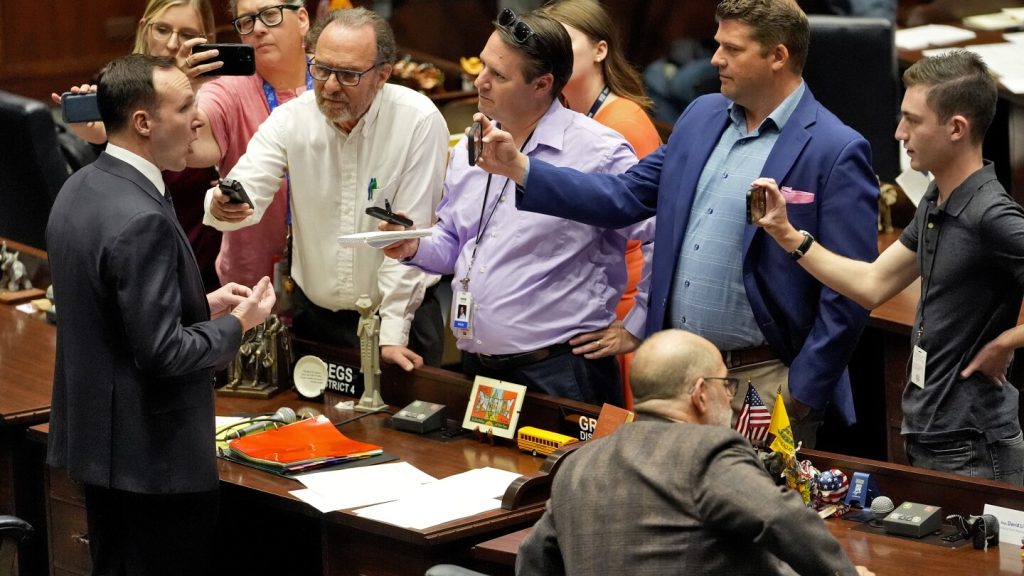The Arizona Legislature faced outrage and chaos on Wednesday as discussions on a proposed repeal of the state’s 1864 law criminalizing abortion throughout pregnancy were shut down by Republican lawmakers. The state Supreme Court recently cleared the way for the enforcement of this controversial law, leading to a swift backlash from abortion providers and advocacy groups. Despite pressure from both Democrats and some Republicans, GOP leaders refused to engage in discussions on repealing the ban, prompting heated reactions and accusations of extremist behavior.
Republican state Rep. Teresa Martinez defended her party’s decision to cut off the debate, accusing Democrats of engaging in disruptive behavior and emphasizing her belief that pregnancy should be celebrated and not considered an illness. On the other hand, Democratic legislators highlighted the extreme nature of the 1864 ban and its potential impact on women’s lives in Arizona. Governor Katie Hobbs condemned the inaction on the proposed repeal, describing the ban as a threat to women’s autonomy and safety. While some Republican legislators openly oppose the ban, the majority of GOP leaders remain steadfast in their support for the law.
The national spotlight has turned to Arizona in the wake of the state Supreme Court’s decision, with widespread concern over the potential consequences of the 1864 abortion ban. Abortion rights advocates continue to offer services, vowing to remain open as long as possible to serve patients in need. Anti-abortion groups have urged residents to oppose a proposed ballot initiative that aims to enshrine abortion rights in the state constitution, sparking a contentious debate over the future of reproductive rights in Arizona. Despite the challenges ahead, abortion rights supporters remain committed to gathering signatures and advocating for a constitutional amendment to protect abortion rights until viability.
Former President Donald Trump weighed in on the controversy during a campaign fundraiser in Atlanta, calling on Arizona lawmakers to address the issue while defending the U.S. Supreme Court’s decision to overturn Roe v. Wade. The ongoing debate over abortion rights has intensified in the aftermath of the court ruling, with stark divisions between Republican-controlled and Democratic-dominated states. While most Republican-led states have moved to enforce new bans or restrictions on abortion, Democrats have sought to protect access to reproductive healthcare. The Arizona ruling poses a significant challenge for doctors and healthcare providers, who may face criminal prosecution for performing abortions under the 1864 law.
Amidst the legal and political battles over abortion rights, concerns have been raised about the impact of enforcing the 1864 law on doctors and patients in Arizona. The potential for criminal sanctions and regulatory interference has raised alarm among healthcare providers, who fear the repercussions of the ban on their ability to provide necessary care. Planned Parenthood and other advocacy groups are preparing for a surge in demand for abortion services as Arizona residents may seek care out of state to circumvent the restrictive laws. As the fight over abortion rights continues to unfold, the implications of the Arizona court decision reverberate across the region, prompting a broader conversation about reproductive rights and access to healthcare.


